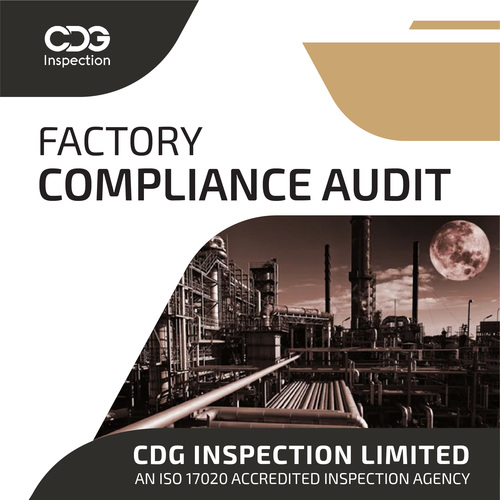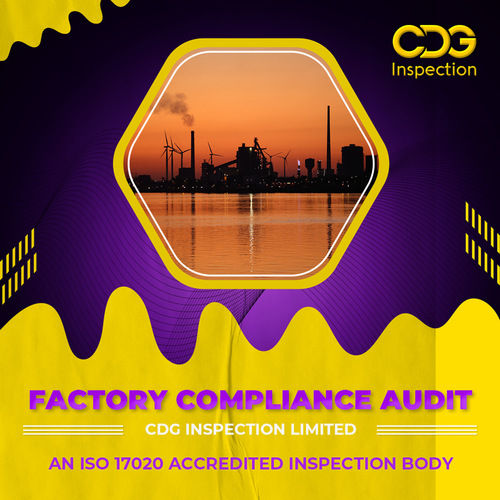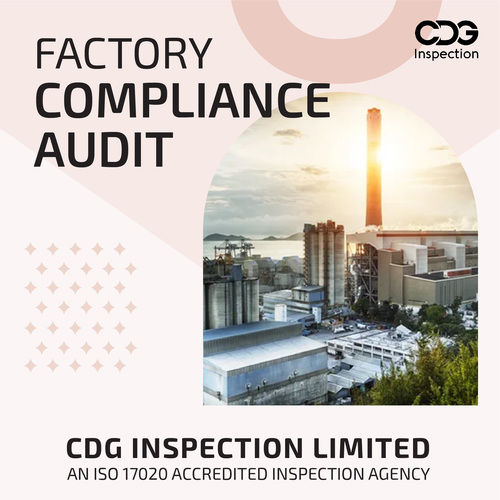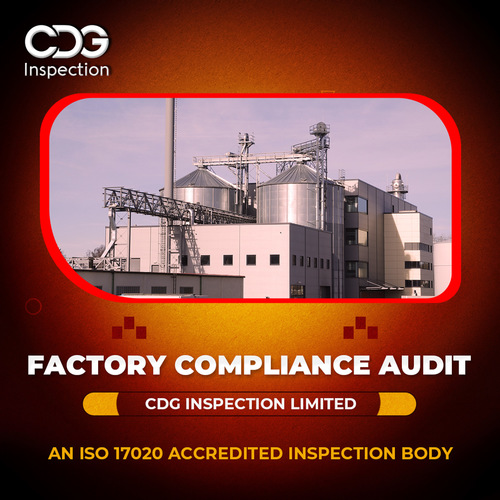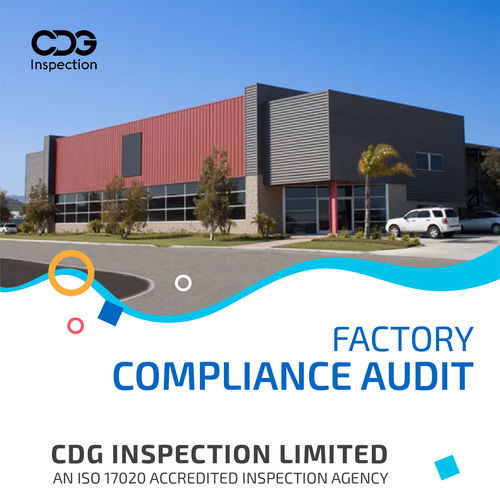Factory Compliance Auditing In Mumbai
Product Details:
Product Description
A factory audit is a type of supplier assessment that takes place at the manufacturers facility. An auditor assesses their systems, capacity, workplace environment, or capabilities to ensure they meet your requirements as a buyer. A factory audit can be used as the last step in qualifying a potential supplier or as a tool for ongoing supplier management with an existing supplier. When Should You Conduct a Factory Audit, Importers generally conduct supplier audits in the following two situations,1) As a Final Step When Qualifying New Suppliers, When you are going through the sourcing process, you will likely identify several suppliers that can manufacture your product. Then, after evaluating them in various ways and getting product samples, you will narrow them down to one. On paper, that supplier may seem to meet your requirements for production, quality, and delivery. They may offer reasonable pricing and produce superb samples. But how can you genuinely verify that they will meet your standards, Before you sign on the dotted line, you can conduct a factory audit to be sure. Visiting the factory in person or hiring a third party like Insight to do it on your behalf will tell you whether the factory has the capacity and capability to produce your goods and ship on time. With this information, you will have the confidence you need to place an order. But before you carry out a supplier audit, it is vital to develop a checklist that meets your specific needs and concerns.2, As Part of Your Ongoing Supplier Quality Management, As you form a relationship with a supplier, you want to ensure that they can continue to manufacture quality products in line with your expectations. To help you do this, you can audit them regularly and at a predetermined frequency to ensure their ongoing adherence to standards. Auditing a manufacturer can help you identify issues in their quality management system and give you a chance to sort them out before they negatively impact any of your shipments. In addition, factory audits are beneficial if you are looking to have a long term relationship with a particular supplier. Now, lets talk about the different flavors of audits.5 ,Types of Factory Audits, There are five types of audits that you can carry out depending on your needs. These are,1 )Capability audits, to help verify whether the factory can manufacture your product within the set timelines.2) Quality audits, to measure whether the supplier has an effective quality management system in place Based on ISO9001 standards.3) Security or CTPAT audits, to ensure compliance with U.S Customs and Border Protections CTPAT program.4, Social compliance audits, to assess working conditions and ensure no human rights violations occur, such as child labor Based on the SA8000 standard.5, Environmental audits, to verify whether the factory complies with environmental standards and requirements. Now lets talk about the difference between audits and inspections. What is the Difference Between a Factory Audit and a Quality Inspection, Here are three main differences between factory audits and product quality inspections,1 Factory Audits Focus on the Long Term, In general, factory audits assess a potential supplier and their ability to ship high quality goods in the long term. They focus on the ability to meet requirements and ensure product quality is maintained. On the other hand, a product inspection focuses only on the products from one particularshipment.2 Factory Audits Focus on the Big Picture, Factory audits cover items like quality management systems and manufacturing practices. They help you assess whether a supplier is a good fit to produce your product or look for opportunities to improve the relationship.3, Factory Audits Are About More Than Product Quality, One reason to conduct a factory audit can be to ensure a supplier operates above board. A social compliance audit, for example, helps you establish whether they comply with health, environmental, and safety standards. For more information about these differences, read our article on the difference between Quality Control and Quality Assurance. Now, lets go over some final thoughts. As an importer, dealing with the right supplier is a significant prerequisite to getting quality products that meet your specifications and customer expectations. One way of ensuring this is by contracting a third party auditor such as CDG to carry out Factory Audit Services. If you need additional information about these services, feel free to reach out to us. A factory audit helps you assess a suppliers systems, capacity, workplace environment, or capabilities to ensure they meet your requirements as a buyer. CIL Provides Accredited Factory Compliance Audit Services in Mumbai, Maharashtra, India. CIL is an ISO 17020 accredited inspection agency for factory compliance audits, vendor audits, supplier audits.

Price:
- 50
- 100
- 200
- 250
- 500
- 1000+

